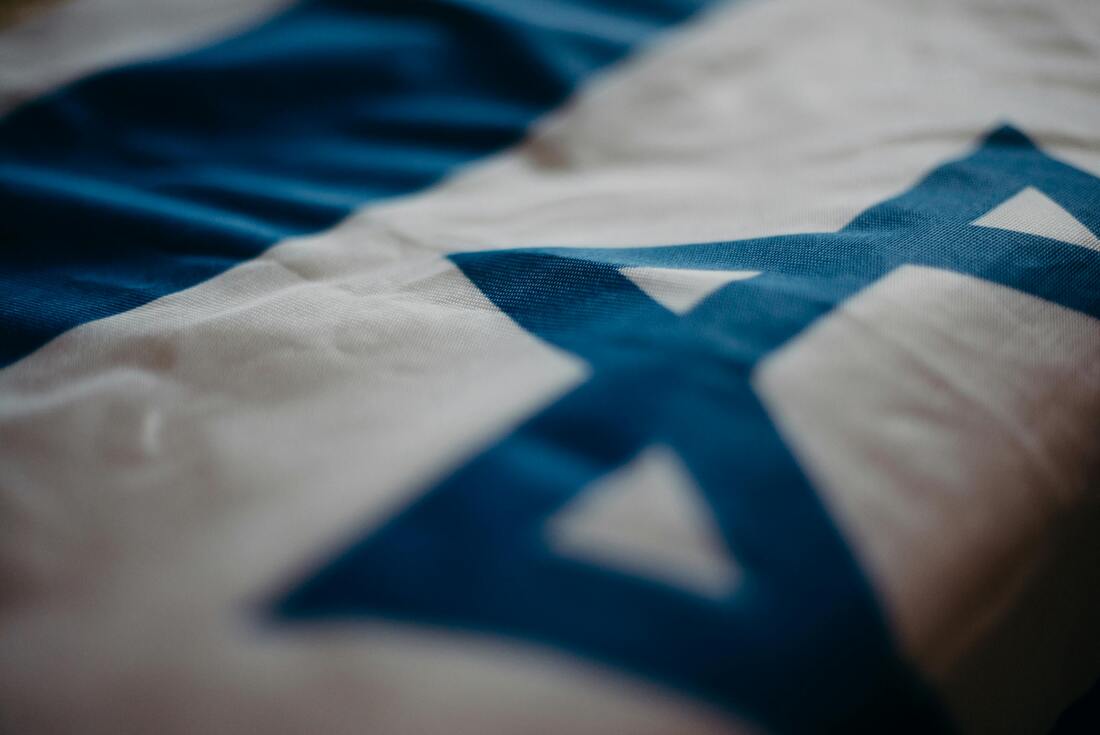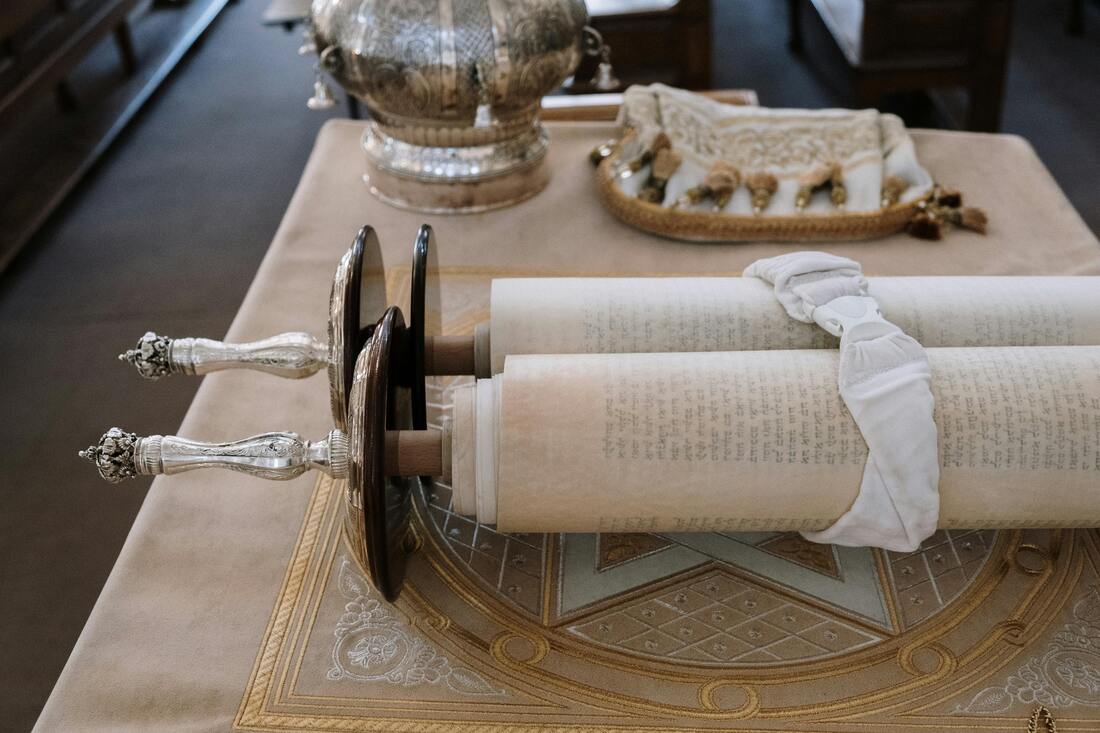|
We should not live in the past but learn from it! This is the clear message from the month of Tammuz, the fourth on the Hebrew calendar. There is wisdom in looking to the past so that we can discern what God is trying to teach us. One of the reasons I keep tuned in to the Hebrew calendar is that it gives me direction each month on how to live my life for victory. The prophet Hosea warns us: "My people are destroyed from lack of knowledge.” (Hosea 4:6) When we are aware of the patterns of the Biblical calendar we are prepared for battle and poised for victory.
The Jews have a day of fasting on the 17th of Tammuz. This marks the day when the Romans breached the walls of Jerusalem in 70 AD. There is another fast that occurs on the 9th of Av, the fifth month, because both Temples were destroyed (in different years) on the same day. We need to be on guard during the month of Tammuz as our spiritual enemies want to repeat history. They will be pushing to entice us into destroying our spiritual temples and our walk with the Lord. Chuck Pierce of Glory of Zion Ministries calls this month "The Filmstrip Month." Our lives tell a story as we learn the pattern from the past and look at the "slides" of events that have occurred and are linked together. We can also learn from the Israelites, as they are the people who are the "root" of our Christian faith. (Romans 11:17, 18) It was during Tammuz that the Israelites were waiting for Moses to return from his meeting with God on Mt. Sinai. They became impatient and looked for immediate gratification and comfort. In their desire they did not remember their past when God freed them from the bondage of Egypt with plunder, led them through the wilderness, and provided for their every need with water, manna, and quail. He even gave them victory over the Amalekites who attacked them. Psalm 78:42 puts it this way: "They did not remember His power—the day He redeemed them from the oppressor." The children of Israel chose to worship an idol, a golden calf that they crafted, instead of God. Idolatry always leads to destruction and desolation. Our enemy, the devil, want us to repeat the pattern of idol worship and places before us a plethora of ways to shift our focus from the worship of the One True God. We must be on guard, especially during this month. Each month of the Hebrew calendar is associated with a letter from the Hebrew alphabet. Tammuz is connected with the eighth letter of this alphabet. It is called "Chet" and looks like a doorway. The letter means "life" or "wisdom." It is significant that the Lord Jesus became a doorway for us. He led us from sin and death and into a life of peace with God. Here is what Jesus said about himself: "...Most assuredly, I say to you, ' I am the door of the sheep...I am the door. If anyone enters by Me, he will be saved, and will go in and out and find pasture." (John 10:7, 9 – NKJV) It is only as we worship the one true God that we will find the door to peace. All of us could make some adjustments in our lives to move toward God's direction. This is the time to look at what has happened in the past so that we can chart the course for the future. We must investigate the trials, battles, and blessings. We must recall prophetic words of direction for our lives. Our life's story is not complete. The way to walk in the right direction is to dedicate ourselves to worshiping the Lord so that we do not develop a "golden calf." We must guard our mouths making sure that the words coming out of it agree with the Kingdom of Light. God wants us to shine this month as Moses did when he entered the Lord's presence. (Exodus 34:29-35) Let us stay on the ancient path and walk in the good way so that we find rest for our souls. (Jeremiah 6:16) One of the traditions of the Jewish community during the holiday of Shavuot is to read the book of Ruth from the Bible. The story takes place during a difficult time in Israel. A famine in the land caused many families to leave their homeland in search of a place that had food. A man named Elimelech, from Bethlehem, took his family (his wife, Naomi, and sons Mahlon and Kilion) to Moab. While there Elimelech died. His sons had taken Moabite women (Ruth and Orpah) as their wives, but they too died within the tenth year of their sojourn. After these events, Naomi heard that God had come to the aid of her people, so she made plans to return to Bethlehem. She instructed her daughters-in-law to return to their families, but Ruth insisted on caring for Naomi and made her a promise: "...Where you go, I will go, and where you stay, I will stay. Your people will be my people and your God my God. Where you die, I will die, and there I will be buried..." (Ruth 1:16) This was indeed a sacrificial vow!
When Naomi and Ruth returned to Bethlehem, "The House of Bread," it was the beginning of barley harvest and the season of Shavuot where the Israelites would renew their commitment and dedication to God and celebrate His provision. The laws of Israel allowed widows and poor people to glean the crops missed by the reapers. It was an opportune time for Ruth to come to Bethlehem. Not only was she able to collect food for Naomi and herself, but she was in the field belonging to Boaz, a relative of Elimelech. Through the events of harvest, we see that God had a plan of restoration. As Ruth faithfully cared for her mother-in-law, she was noticed by Boaz who willingly watched over her. He encouraged her with his words. "May the Lord repay you for what you have done. May you be richly rewarded by the Lord, the God of Israel, under whose wings you have come to take refuge." (Ruth 2:12) Two Psalms remind us of what Boaz said. Psalm 57:1b, written by King David, says, "I will take refuge in the shadow of your wings until the disaster has passed." Psalm 91:4 declares, "He will cover you with His feathers, and under His wings you will find refuge..." For Ruth, gleaning in Boaz's field was so productive that Naomi questioned Ruth about its location. It was then that she realized that Boaz was a kinsman-redeemer for her family. This man could volunteer to care for the extended family. The transaction did take place on the threshing floor where the grain or inner kernel of the crop is separated from the chaff or outer shell. The barley or wheat would be thrown into the air so that the lighter chaff was blown away in a processp called winnowing. It seems to me that what was taking place at the threshing floor was also taking place in Ruth's life. She had been separated from everything she knew—her family, her homeland, and any security. In the spiritual realm, God was winnowing Ruth to prepare her for a life with God-ordained purposes. She was completely unaware that she was stepping into a family whose line would play a part in the birth of the Messiah of Israel. After Boaz arranged to marry Ruth, she conceived a son, Obed, who is David's grandfather. This story of self-sacrifice and sorrow turned to joy happened because seeds of love were planted by two desperate women in an extremely difficult situation. By following the God of Israel, they were able to play a part in God's plans for redemption and restoration. Like Ruth, sometimes we feel like our lives are on the rock-hard threshing floor. It is during these times that we must remember that the Lord is lifting us up to reveal the kernel of our hearts. He removes the outer shell to expose the core gifts He placed within us so that He can bring us into an expanded inheritance where He can use us to partner with Him in the growth of His Kingdom. God still restores and redeems so that "Those who sow with tears will reap with songs of joy. Those who go out weeping, carrying seed to sow, will return with songs of joy, carrying sheaves with them." (Psalm 126:5) God calls them festivals or feasts. They are explained to us in the book of Leviticus, Chapter 23. Three times a year, Jewish men were commanded to go to Jerusalem to give an offering to the Lord. Passover or Pesach, Pentecost or Shavuot, and Feast of Tabernacles or Sukkot are called "Pilgrim Feasts" because of the requirement for men to present themselves before God. All three of these feasts have to do with harvests and honoring God's provision, The feasts, in Hebrew, are called Moedim, which means "Appointed Times."
At sunset next Tuesday, the celebration of Shavuot will take place. Beginning on the day of Firstfruits or the day Jesus was resurrected and the day the firstfruits of the barley harvest were brought to the synagogue, Jews began to count: "Count off fifty days up to the day after the seventh Sabbath, and then present an offering of new grain to the Lord. From wherever you live, bring two loaves made of two-tenths of an ephah of the finest flour, baked with yeast, as a wave offering of firstfruits to the Lord." (Leviticus 23:16, 17) We can read about the expansion and fullness of Shavuot in Acts, Chapter 2. What happened in the upper room in Jerusalem reenacted what happened on Mount Sinai. Some of you may be asking why we should be celebrating Shavuot next week when the Church did so on Sunday, May 19. This is because the Church's traditional celebration of the resurrection of Jesus follows the Greek calendar instead of the Hebrew one. Their fifty-day count started much earlier than the one that started the second day of Passover. Since I grew up in a traditional church and understand the difference between the two calendars, I choose to remember both dates and believe all Christians should do likewise. On the Hebrew calendar, Shavuot falls on the sixth day of the third month of Sivan. Initially, Shavuot was a celebration of the wheat harvest. Added to it was the remembrance of this time when Moses received the two tablets with the laws of God written on them. Two is a significant number during this festival. Two loaves of bread with leaven in them are waved before God as an offering and can have several meanings. They could represent the two tablets of Torah containing the ten commandments. We could also conclude that they refer to two gifts--the gift of the law and that of The Holy Spirit. (Ruach Kadosh). Others believe that the two loaves are symbols of Jew and Gentile as the one new man written about in Ephesians 2:15. This reminds us that God fulfilled His covenant with Abraham to bless all nations through him. (Genesis 12:3) Since leaven symbolizes sinful humanity, we are reminded that the Body of Christ or The Church is made up of sinners but redeemed by the Lord. God selected the day when the people in Israel would be gathered to celebrate the wheat harvest to pour out HIs Spirit. Acts 2:1 says, "When the day of Pentecost came, they were all together in one place." The description of this continues in Acts 2:2-4. "Suddenly a sound like the blowing of a violet wind came from heaven and filled the whole house where they were sitting. They saw what seemed to be tongues of fire that separated and came to rest on each of them. All of them were filled with the Holy Spirit and began to speak in other tongues as the Spirit enabled them." This is a picture of what happened on Mount Sinai. "Mount Sinai was covered with smoke, because the Lord descended on it in fire." (Exodus 19:18) When Moses came down from the mountain, he saw the Israelites worshiping a golden calf that they built. Three thousand people died on that day because of their sin. However, on the day when the Holy Spirit was released, three thousand Jews became believers in Yeshua. Redemption has always been God's plan. Shavuot has been compared to a wedding for it was on this day that the Jews became "The Bride of Messiah." The Spirit of God wrote the law on the hearts of His people as Jeremiah 31:33 prophesies. The law of love became a priority. As we remember how God empowers His people during this season of Shavuot/Pentecost, let us thank Him for the harvest, recommit ourselves to His Word, and celebrate the gift of His presence through the Holy Spirit. Iyar, often called Ziv, was a month of transition for the children of Israel. They left Egypt and were making their way to Mt. Sinai during this month. Iyar is related to the Hebrew word for light. ("ohr") The Hebrew book called the Midrash (an ancient commentary on Hebrew Scripture) explains that this month was named for the manna that began to fall during this time. By bringing the manna, God introduced Himself as Jehovah Jireh, "The God who Provides."
|
Joan E. MathiasCategories
All
Archives
July 2024
|










 RSS Feed
RSS Feed